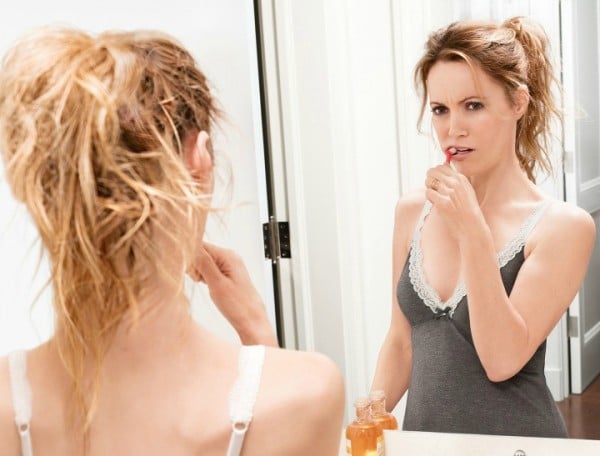
Your toothbrush is a pretty simple device. You brush your teeth with it. Wash it off. Chuck it back in the jar. Replace when the bristles get worn out. Easy, right?
Think again, people.
It may look innocent but your toothbrush could be a breeding ground for bacteria… and, erm, poo. We wish we were kidding. But in saying that, we wouldn’t tell you all of this without offering some solutions, too.
1. Your toothbrush probably has poo on it.
If you share a bathroom with others you might want to pay close attention. A study from the American Society for Microbiology found 60 per cent of toothbrushes in shared bathrooms have… wait for it… faecal matter on them.
But wait, there’s more. Of those toothbrushes, 80 per cent of the faecal matter IS FROM OTHER PEOPLE.

